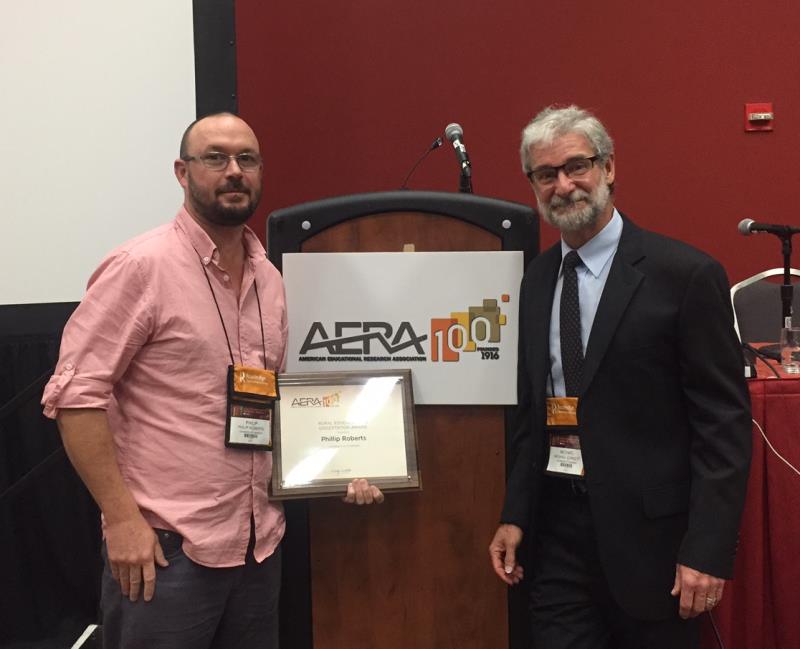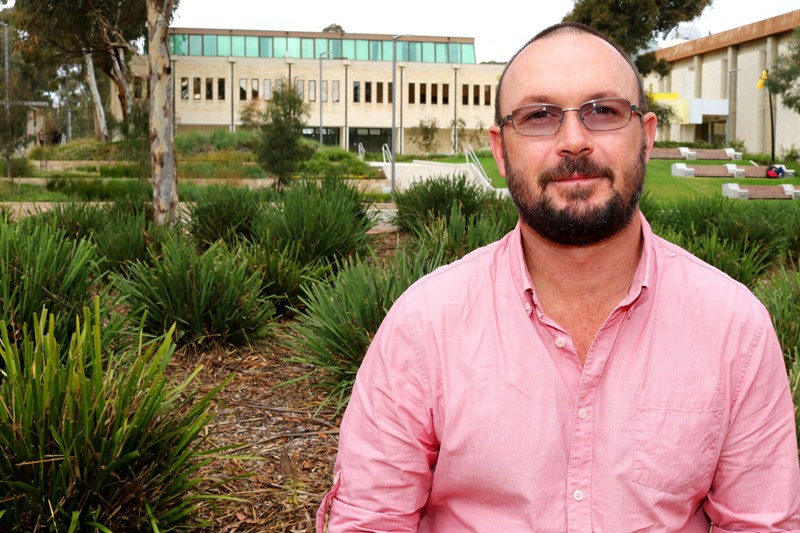Marcus Butler
17 May 2017: The city-focused perspective in Australia’s education system is being challenged by a University of Canberra expert, and one of the world’s leading education research groups is certainly paying attention.
Dr Philip Roberts has received the American Education Research Association’s (AERA) Rural Education Special Interest Group (SIG) Award for his work which questions the ‘metro-centric view of education’.
His dissertation Place, Rural Education and Social Justice: A Study of Rural Teaching and Curriculum Politicsargues that rural education is often viewed as being on the periphery of mainstream education and he’s hoping to change that.
Dr Roberts’ work takes a ‘rural standpoint’ which values rural people and communities and the specific and distinct knowledge they possess.
“Children who are educated in a rural setting are at a disadvantage; that is clear in the statistics. I’ve found that the disadvantage is socially and spatially produced. Which means it can be fixed through better policies and practices,” Dr Roberts said.
“Currently, much of Australia’s education system, including curricula and teacher training, is inspired by and based in a metropolitan/urban viewpoint. That’s fine for a lot of students, but for those who are unfamiliar with urban environments and issues it can be unfairly challenging.
“This city-centric viewpoint emphasises globalisation, mobility and economic perspectives, which rural students are likely to have less experience with and those same areas can be taught in ways which are equally unfamiliar.”
Dr Roberts says that this viewpoint isn’t good or bad in itself, but it does present problems for students trying to grapple with concepts they haven’t experienced.
“Creating a maths problem based around a bus or train timetable, for example, may pose no problem for someone familiar with public mass transport. But for kids raised in a small town or on the land, the concept may be completely foreign to them,” he said.
Dr Roberts’ paper also identified a problem in approaching the issue of the rural–city divide as a researcher.
“Trying to analyse the education system, with a focus on rural disadvantage, you quickly find that the city-centric view point can shape and colour the very things you’re trying to uncover. This is why I’ve put forward the rural viewpoint as a research tool as well as a perspective to help shape education policy and curricula.”
Dr Roberts said he was honoured to receive the AERA SIG award at the organisation’s annual conference in Texas, USA.
“After many years of work, it’s great to receive acknowledgement from my peers and to know they’re paying attention to this situation. But it’s important to note that this is just the beginning and the work of turning around education systems in Australia and around the world is still ahead of us.
“When I think about my research and this award, I think of the kids I was teaching in rural, western New South Wales. They’re my motivation. I want to help build an education system that reflects and values their own knowledge of place, improves their position and increases their opportunities.”




